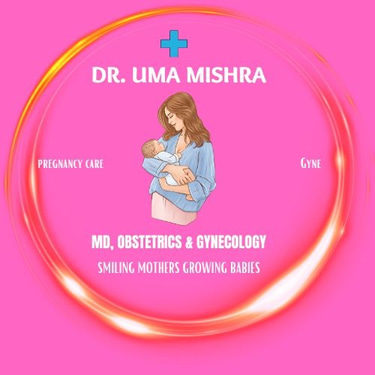Know About IVF
All About IVF: What Every Woman Should Know
Dr Uma Mishra, reputed Gynecologist in India explains what women need to know about IVF.


Brief Overview of IVF (In Vitro Fertilization)
In Vitro Fertilization (IVF) is a groundbreaking assisted reproductive technology that has revolutionized the landscape of fertility treatment. This medical marvel enables individuals and couples experiencing infertility to conceive by combining an egg and sperm outside the body and subsequently implanting the fertilized embryo into the uterus. Since the first successful IVF procedure resulted in the birth of Louise Brown in 1978, millions of couples worldwide have turned to IVF to fulfill their dreams of parenthood.
The IVF Process: A Step-by-Step Journey
IVF involves a meticulously orchestrated series of steps, each playing a crucial role in the quest for conception. The process typically begins with ovulation induction, where hormonal medications stimulate the ovaries to produce multiple eggs. Monitoring the maturation of these eggs is a critical aspect, as it allows healthcare professionals to determine the optimal time for egg retrieval. The next stage, egg retrieval, involves a minor surgical procedure wherein mature eggs are extracted from the ovaries using a thin needle. Simultaneously, sperm is collected from the male partner or a sperm donor. In the laboratory, these eggs and sperm are combined to facilitate fertilization. The resulting embryos are closely monitored for several days, and the healthiest and most viable ones are selected for transfer. Embryo transfer marks the final step, where the selected embryos are placed into the woman's uterus. Success hinges on the implantation of the embryo, leading to a pregnancy that, with proper care, progresses to a healthy birth.
The Importance of Knowledge for Women Undergoing IVF
Understanding the intricacies of IVF is paramount for women embarking on this journey. The emotional, physical, and financial investment in IVF is significant, making informed decision-making an empowering tool for those navigating fertility challenges. Here are key reasons why knowledge plays a pivotal role in the IVF process: Informed Decision-Making: Knowledge equips individuals with the information needed to make informed decisions about pursuing IVF. Understanding the intricacies of the process, its success rates, and potential challenges allows individuals to weigh the pros and cons, aligning their choices with their personal goals and values. Emotional Preparedness: IVF is an emotional rollercoaster, filled with hope, anticipation, and sometimes disappointment. Knowing what to expect at each stage helps individuals prepare emotionally for the highs and lows of the journey. This preparation fosters resilience and coping mechanisms, contributing to a more positive experience. Optimizing Treatment Success: Comprehensive knowledge about lifestyle modifications, medication regimens, and potential risks empowers individuals to actively participate in optimizing the success of their IVF treatment. Adhering to prescribed protocols, maintaining a healthy lifestyle, and understanding potential challenges contribute to a more favorable outcome. Effective Communication with Healthcare Providers: Knowledge enables effective communication with healthcare providers. Being well-informed allows individuals to ask pertinent questions, understand treatment options, and actively engage in shared decision-making with their medical team. This collaboration enhances the overall quality of care. Reducing Stress and Anxiety: Uncertainty and the unknown can contribute to heightened stress and anxiety. A solid understanding of the IVF process, potential outcomes, and coping strategies alleviates some of these concerns. Knowledge empowers individuals to approach the journey with a sense of control and confidence. Navigating Financial Considerations: IVF can be a costly endeavor, and understanding the financial aspects is crucial. Knowledge about insurance coverage, potential out-of-pocket expenses, and available financial assistance options allows individuals to plan effectively, minimizing the financial burden associated with fertility treatments. In conclusion, embarking on the IVF journey armed with knowledge is akin to navigating uncharted waters with a well-prepared map. It provides a sense of direction, empowers decision-making, and contributes to a more positive and informed experience. As technology advances and our understanding of fertility deepens, the importance of knowledge in the realm of IVF continues to be a beacon of hope for those striving to build their families.
Understanding Fertility
Fertility, a complex interplay of biological, hormonal, and environmental factors, is a cornerstone of the human experience. For those seeking to expand their families, a deeper comprehension of fertility becomes paramount. This chapter delves into the fundamentals of the female reproductive system, explores the myriad factors influencing fertility, and examines common causes of infertility.
1. Basics of the Female Reproductive System
The female reproductive system is a marvel of biological engineering, designed to support conception, pregnancy, and childbirth. Understanding its key components provides valuable insight into the intricate dance of hormones, organs, and processes involved in fertility.
a. The Ovaries:
- Responsible for producing eggs (ova) and hormones, primarily estrogen and progesterone.
- Ovulation, the release of a mature egg, occurs approximately once a month.
b. The Fallopian Tubes:
- Serve as the conduits for eggs to travel from the ovaries to the uterus.
- The site of fertilization, where sperm meets egg, initiating the formation of an embryo.
c. The Uterus:
- A muscular organ that hosts the development of a fertilized egg into a fetus during pregnancy.
- The endometrium, the inner lining of the uterus, undergoes cyclical changes in preparation for potential implantation.
d. The Cervix:
- The lower part of the uterus that connects to the vagina.
- Produces cervical mucus, which changes in consistency throughout the menstrual cycle to facilitate or inhibit sperm passage.
e. The Vagina:
- The birth canal and the site for sperm deposition during intercourse.
f. Hormonal Regulation:
- The hypothalamus, pituitary gland, and ovaries work in tandem to regulate the menstrual cycle and reproductive processes through hormonal signals.
2. Factors Affecting Fertility
Fertility is influenced by a myriad of factors, both intrinsic and extrinsic. These factors can impact the delicate balance of reproductive processes, affecting the ability to conceive.
a. Age:
- A woman's fertility declines with age, with a notable decrease in egg quality and quantity, particularly after the age of 35.
b. Lifestyle Factors:
- Diet, exercise, and overall health play significant roles in fertility.
- Smoking, excessive alcohol consumption, and obesity can negatively impact reproductive health.
c. Underlying Health Conditions:
- Conditions such as polycystic ovary syndrome (PCOS), endometriosis, and thyroid disorders can affect fertility.
d. Sexual Health:
- Sexually transmitted infections (STIs) can damage reproductive organs and impact fertility.
- Regular sexual activity, timed with the menstrual cycle, is crucial for conception.
e. Environmental Factors:
- Exposure to certain chemicals, pollutants, and radiation can adversely affect fertility.
f. Stress:
- Chronic stress can disrupt hormonal balance, potentially affecting ovulation and fertility.
3. Common Causes of Infertility
Infertility, defined as the inability to conceive after a year of regular unprotected intercourse, is a prevalent concern for many couples. Understanding the common causes provides a foundation for diagnosis and targeted interventions.
a. Ovulatory Disorders:
- Irregular or absent ovulation can impede conception.
- Conditions such as PCOS and hypothalamic dysfunction may disrupt ovulatory patterns.
b. Male Factor Infertility:
- Issues with sperm production, motility, or morphology can contribute to infertility.
- Factors like varicocele, infections, or genetic conditions may affect male fertility.
c. Tubal Factor:
- Blockages or damage to the fallopian tubes can prevent the egg and sperm from meeting.
- Often a result of pelvic inflammatory disease or endometriosis.
d. Uterine and Cervical Factors:
- Abnormalities in the uterus or cervix can hinder implantation or sperm transport.
- Conditions like fibroids or cervical stenosis may be contributing factors.
e. Unexplained Infertility:
- In some cases, no clear cause of infertility is identified despite thorough investigations.
Understanding fertility involves recognizing the intricate dance of biological, lifestyle, and environmental factors that influence the ability to conceive. Armed with this knowledge, individuals can embark on their fertility journey with a deeper appreciation for the complexities involved, empowering them to make informed decisions and seek appropriate interventions when needed.
Is IVF Right for You?
Embarking on the journey of assisted reproductive technologies, particularly In Vitro Fertilization (IVF), is a significant decision that warrants careful consideration. This chapter aims to guide individuals and couples through the process of determining if IVF is the right path for them. It explores methods for assessing the need for IVF, compares alternative fertility treatments, and addresses the emotional and psychological considerations associated with this transformative reproductive technology.
1. Assessing the Need for IVF
a. Medical Evaluation:
Individuals should undergo a thorough medical evaluation to identify underlying fertility issues.
Diagnostic tests may include hormone assessments, imaging studies, and semen analysis for both partners.
b. Recurrent Pregnancy Loss or Failed Treatments:
Couples experiencing recurrent pregnancy loss or unsuccessful attempts with other fertility treatments may consider IVF.
IVF can address specific issues such as unexplained infertility, tubal factor infertility, or severe male factor infertility.
c. Age and Ovarian Reserve:
Advanced maternal age or diminished ovarian reserve may prompt consideration of IVF, as these factors can significantly impact natural conception.
d. Tubal Factor or Blocked Fallopian Tubes:
IVF is a viable option for couples facing challenges due to tubal factors or blocked fallopian tubes, circumventing the need for tubal surgeries.
e. Pre-implantation Genetic Testing (PGT):
- Individuals with a history of genetic disorders or recurrent miscarriages may opt for IVF with PGT to screen embryos for genetic abnormalities before implantation.
2. Other Fertility Treatments and Their Comparisons
a. Ovulation Induction and Timed Intercourse:
- Suitable for couples with irregular ovulation.
- Involves medications to stimulate egg production and timed intercourse during the fertile window.
b. Intrauterine Insemination (IUI):
- Sperm is directly injected into the uterus during ovulation.
- Less invasive than IVF, often recommended for mild male factor infertility or unexplained infertility.
c. Surgery for Tubal Issues or Endometriosis:
- Surgical interventions may address tubal blockages or endometriosis, potentially allowing natural conception.
d. Donor Sperm or Eggs:
- Individuals or couples with severe male factor infertility or ovarian issues may consider using donor sperm or eggs before opting for IVF.
e. Adoption:
- Adoption is a viable alternative for those who may choose not to pursue biological parenthood.
f. Natural Approaches:
- Lifestyle modifications, alternative therapies, and holistic approaches may complement fertility treatments, but their efficacy varies.
3. Emotional and Psychological Considerations
a. Impact of Infertility on Mental Health:
- Infertility can lead to stress, anxiety, and depression.
- Couples may experience grief, guilt, and feelings of inadequacy, affecting their overall well-being.
b. Couples' Communication and Support:
- Open communication between partners is crucial during the decision-making process.
- Seeking support from friends, family, or infertility support groups can provide emotional strength.
c. Managing Expectations:
- Realistic expectations are vital to navigating the emotional challenges of fertility treatments.
- Understanding that success may require multiple attempts helps manage disappointment.
d. Counseling and Therapy:
- Professional counseling or therapy sessions can offer coping strategies and emotional support throughout the IVF journey.
e. Self-Care and Stress Reduction:
- Incorporating self-care practices, such as mindfulness, meditation, and relaxation techniques, can help alleviate stress.
f. Considering the Impact on Relationships:
- Couples should discuss how the IVF process may impact their relationship and consider strategies to strengthen their bond during challenging times.
In view of the above, the decision to pursue IVF is deeply personal and should be made after careful consideration of medical, emotional, and psychological factors. This chapter aims to empower individuals and couples to assess their unique circumstances, explore alternative options, and navigate the emotional landscape of fertility treatments with informed decision-making and resilience.
Dr Uma Mishra, MD is a leading Gynecologist who can guide you in the IVF process. Consult Today at 8130550269 for online or in clinic appointments.
